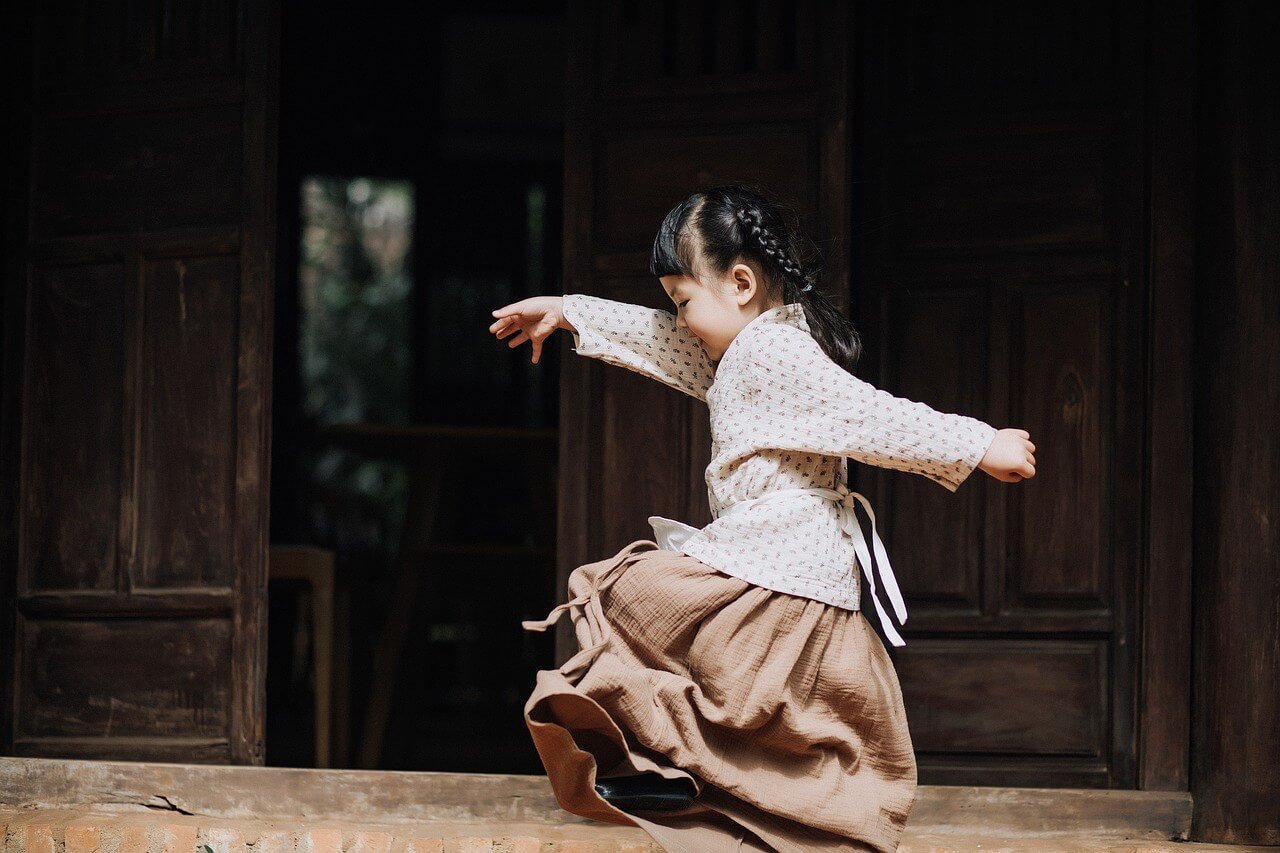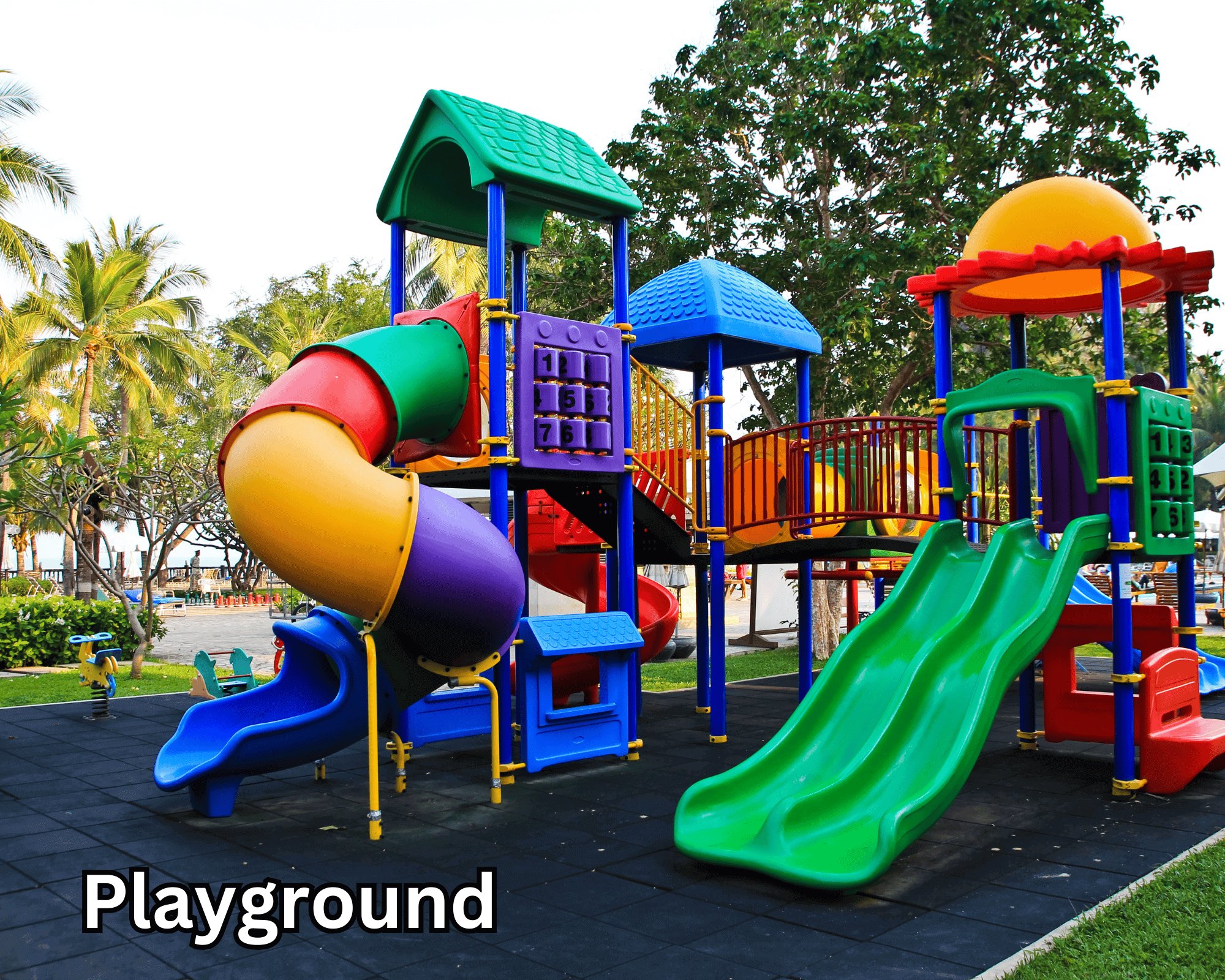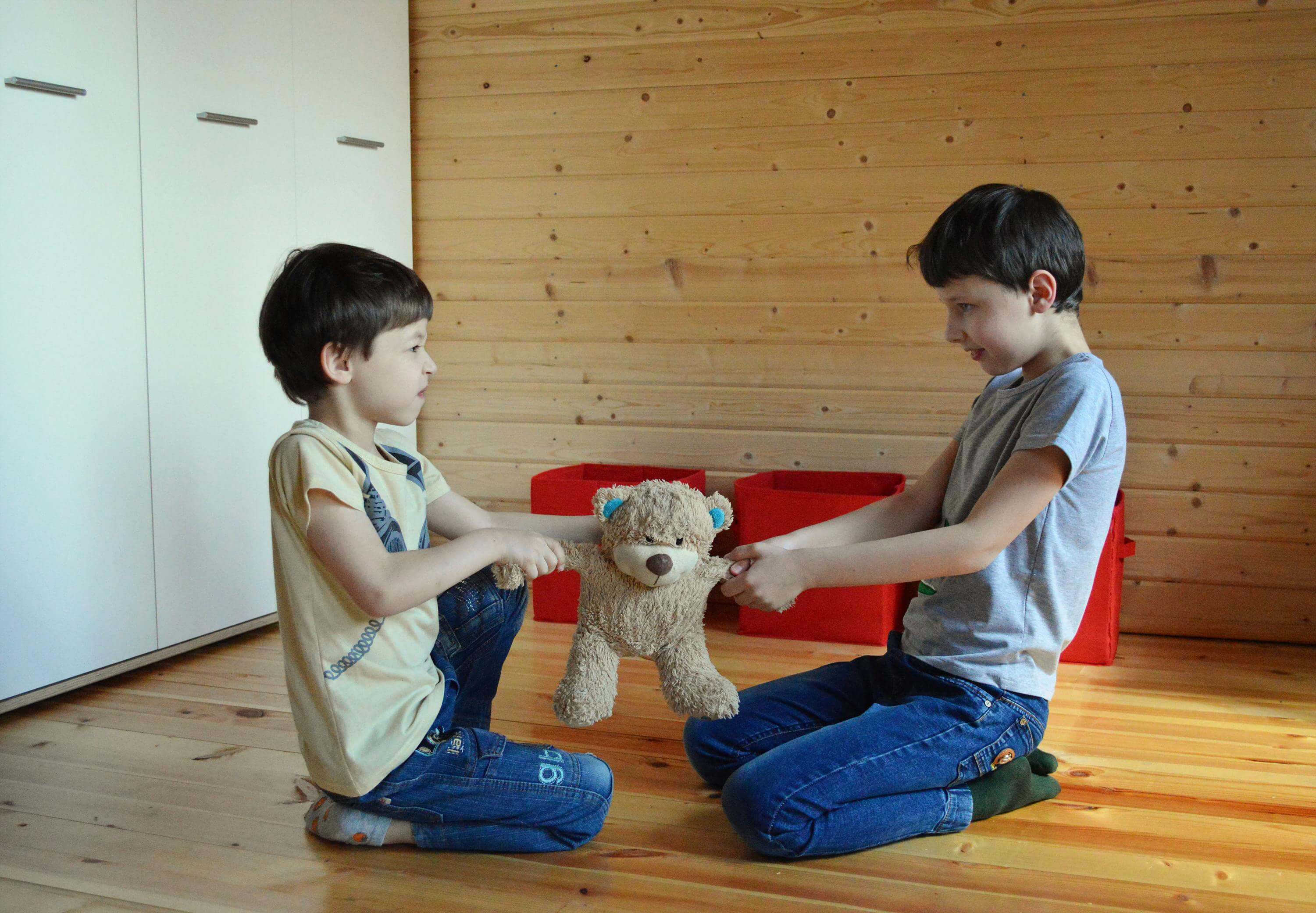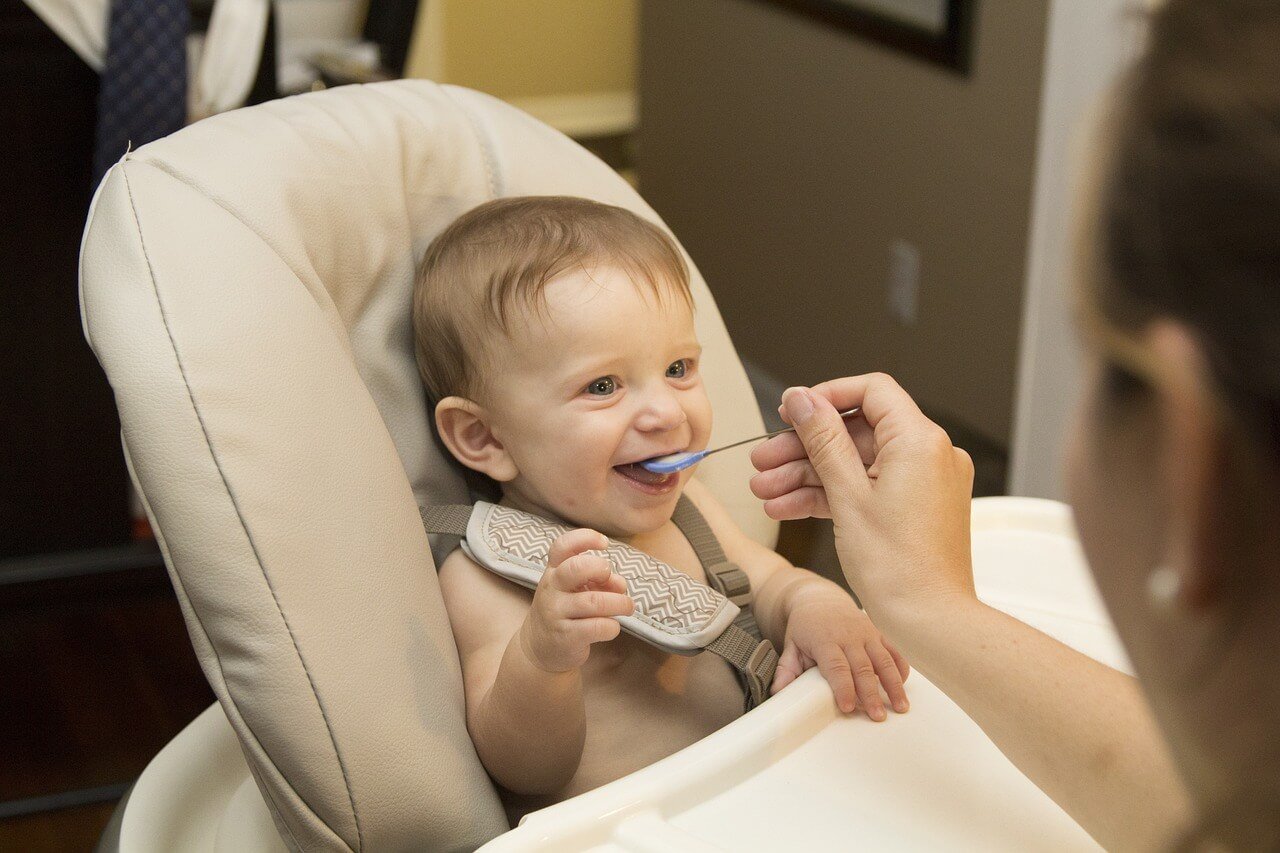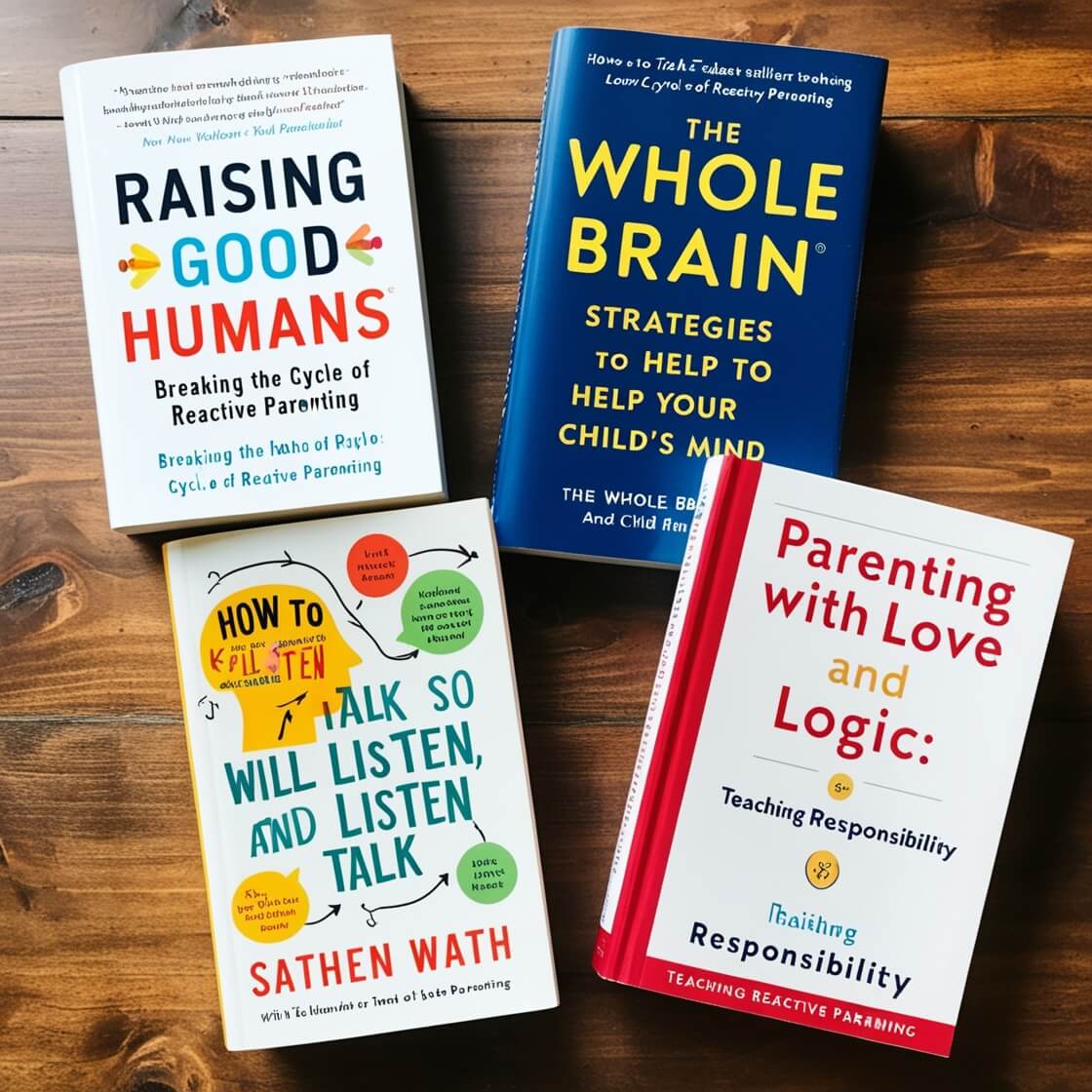A Comprehensive List of Different Types of Parents
When I was researching different types of parents, other than Diana Baumrind's 4 Parenting Styles, Authoritative, Authoritarian, Permissive and Neglectful (Uninvolved).
I have to say, it was all quite overwhelming, even confusing at times. There are so many styles, types, methods and techniques of parenting.
I took every type I could find and compiled the following list.
Apparently, there are more, but, these are the ones that were easier to find and are more commonly used.
The more commonly known types of parenting such as attachment, helicopter, tiger, positive and others are sub-types. I have sorted them into the sub-styles drop down menu.
The remainder are in the drop down menu called parenting.
Different Types of Parents
1. Attachment Parenting: Focuses on nurturing a strong emotional bond between parent and child, often involving practices such as co-sleeping, baby-wearing, and responsive feeding.
 Mom is reading a book with infant in carrier.
Mom is reading a book with infant in carrier.2. Helicopter Parenting: Characterized by excessive involvement and intervention in a child's life.
Helicopter parenting includes closely monitoring their activities, making decisions for them, and shielding them from failure or harm.
3. Tiger Parenting: Emphasizes strict discipline, high expectations, and a focus on academic or extracurricular achievement, often associated with traditional Asian parenting styles.
4. Free-Range Parenting: Gives children more freedom to explore and learn from their environment, promoting independence and self-reliance.
5. Conscious Parenting or Unconditional Parenting: Involves mindfulness and intentionality in parenting, emphasizing empathy, emotional awareness, and respectful communication with children.
6. Positive Parenting: Focuses on encouraging good behaviour through positive reinforcement and constructive discipline.
It fosters strong communication based on mutual respect and understanding.
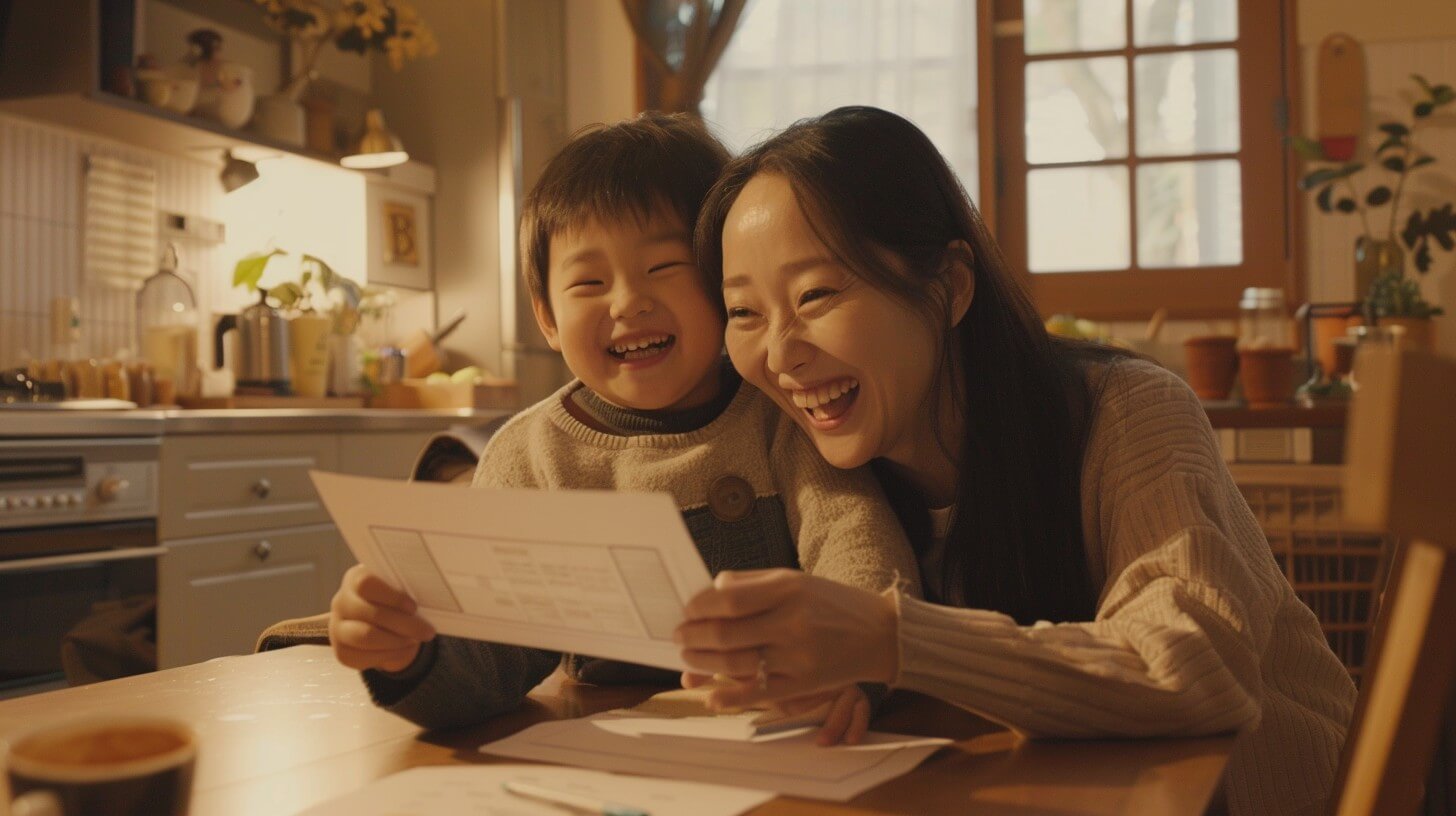 Mom and son sitting at the table in the kitchen while looking at a paper and laughing.
Mom and son sitting at the table in the kitchen while looking at a paper and laughing.7. Eggshell Parenting: Due to their parent’s constant moodiness, kid’s feel like they’re walking on eggshells. The parent is fine 1 min and yelling the next.
Kids feel high levels of anxiety and stress, fearing their parents reactions.
8. Spiral Parenting: Involves adapting parenting approaches to meet the changing needs and developmental stages of the child.
Spiral parenting recognizes that parenting is a dynamic and evolving process.
9. Solo Parenting: Refers to parenting done by a single parent, who may face unique challenges and responsibilities in raising their child without the support of a partner.
10. Blended Parenting: Involves parenting children from previous relationships within a new blended family structure.
It requires communication, and boundary-setting among parents and step-parents.
11. Co-Parenting: Involves divorced or separated parents working together to raise their children.
It often requires effective communication, cooperation, and compromise for the well-being of the child.
12. Snowplow Parenting: This parenting style involves clearing obstacles and challenges from a child's path, often intervening to ensure the child's success and happiness.
Sometimes to the detriment of the child's ability to develop resilience and problem-solving skills.
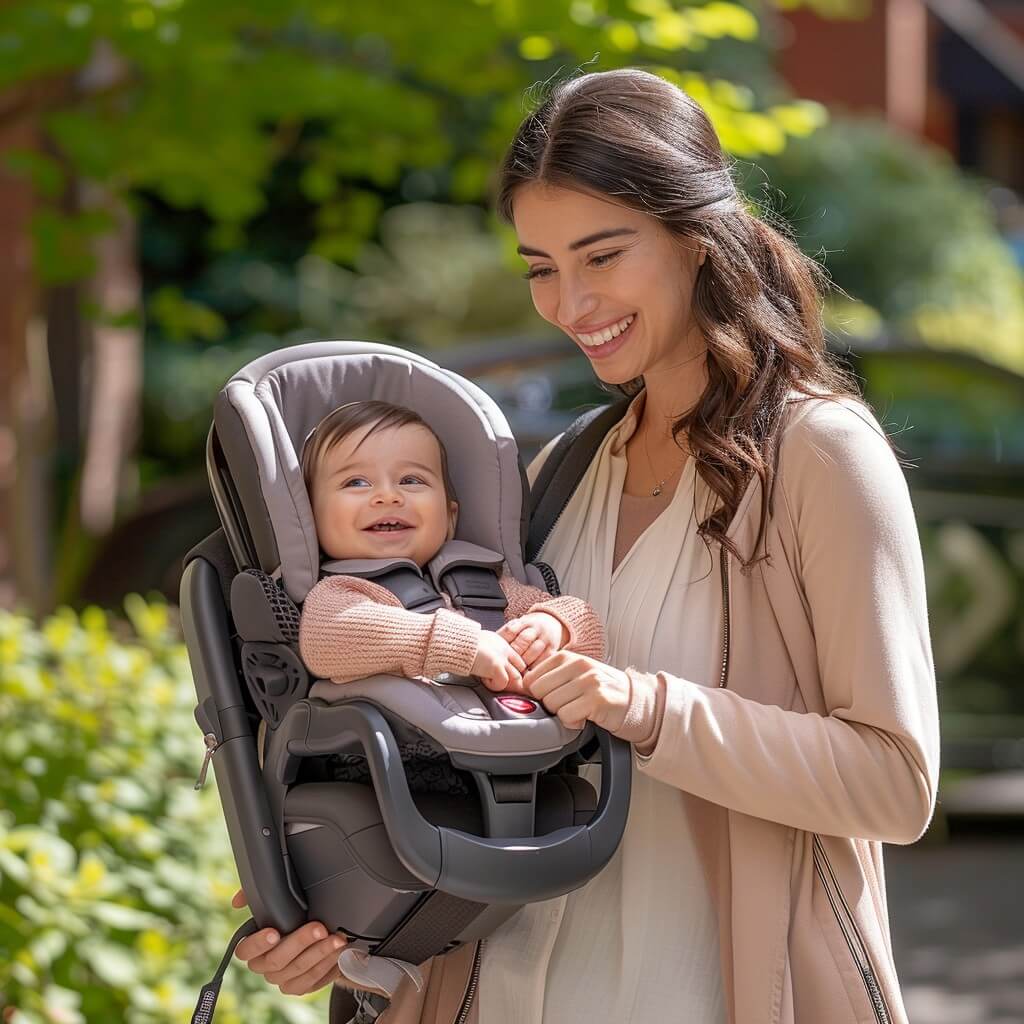 Mom is carrying a car seat with her baby in it and they are outside. They are both smiling.
Mom is carrying a car seat with her baby in it and they are outside. They are both smiling.13. Gentle Parenting: Focuses on empathetic and respectful communication and non-punitive discipline.
Building a strong emotional connection with the child and promoting mutual understanding and cooperation.
14. Lighthouse Parenting: Like a lighthouse guiding ships safely to shore, lighthouse parenting involves providing guidance and support.
Also a sense of stability while allowing children the freedom to explore and make their own choices, encouraging independence and self-discovery.
15. Passive Parenting or Indulgent Parenting: Characterized by a hands-off approach and minimal involvement in a child's life.
Passive parenting lacks structure, guidance, and emotional support, potentially leading to feelings of neglect and insecurity in the child.
16. Spiritual or Holistic Parenting: Focuses on nurturing a child's mind, body, and spirit, often emphasizing mindfulness, connection to nature, and the development of inner values.
17. Slow Parenting or Nurturant Parenting: Emphasizes a relaxed, unhurried approach, allowing children the freedom to explore, play, and develop at their own pace, fostering deep family connections.
18. Narcissistic Parenting: Characterized by parents who prioritize their own needs and image over their child’s, often leading to children feeling pressured to meet unrealistic expectations.
19. Instinctive Parenting: Relies on natural intuition and innate wisdom, trusting one’s gut feelings to guide parenting decisions rather than strictly adhering to external advice or methods.
20. Toxic Parenting: Involves behaviors that are emotionally or physically harmful to a child.
Toxic parents often include manipulation, criticism, or neglect, which can negatively impact the child's self-esteem and well-being.
 Dad and two older daughters are looking angrily at each other.
Dad and two older daughters are looking angrily at each other.21. Intensive Parenting: Intensive parenting is a highly involved and hands-on approach where parents closely manage every aspect of their child's life.
This can include education to extracurricular activities, often with the aim of fostering their success and well-being.
22. High Achievement Parenting: While still offering support, these parents have high expectations that their child excel academically and in other areas of their life.
Emphasizing the importance of success, discipline and dedication.
When you think about different types of parents, it's easy to see the variety of styles and approaches that shape how families function.
Some parents are caring and deeply involved in every part of their child's life, while others encourage their kids to be more independent by giving them more freedom.
There are also the organized, schedule-driven parents who plan everything meticulously, and the more laid-back types who take life as it comes.
It doesn’t matter how you raise your child, each different type of parent brings unique strengths to the table.
Remember to always be flexible with whatever parenting styles you use, keeping in mind that kids are watching us more often than listening to us.
 Dad and daughter are playing a game together.
Dad and daughter are playing a game together.There you have it, Primary Parenting
Styles and Sub-Types
I thought it might be fun for you to read my story and Parenting Style. It's Below.
I would like to share my parenting style story with you.
I exhibited an authoritative parent style. We (my husband and I) set rules. Well, me mostly, he wanted to be more of a military style parent and that was just not about to happen.
Plus I did most everything with them anyway.
I set clear rules and guidelines. When they were little, I did the time outs, up until they were about 6 or 7. Later I would take their ipod or CD Player or send them to their room til we both calmed down.
(Yes, I changed the rules, but as they get older we need to be flexible and make adjustments appropriate to their age).
They often slammed doors and yelled a lot. One time, one of the girls punched a hole in the wall, told me I wasn't her real mom.
Ended up that she only hurt herself and my feelings, but I expected that response at some point.
As they got even older still, they were all about their friends. So if they misbehaved in some way, I would just not allow them to go to movies, birthday etc. next time and we would discuss why.
I was never a parent who believed in groundings for any length of time. It just didn't seem to make any sense to me. I mean grounding them for a week or two, what did that ever accomplish.
They would just do it again when the grounding was over. Ever see Malcolm in the Middle?
When they were around 16-18 they would go to parties and had boyfriends.
I would always make sure to talk with them before hand about safety, you know like always staying with a friend, whatever they were drinking, (hopefully pop), never ever put it down and walk away from it and so forth. We discussed drugs and drinking.
I could only hope for the best and they always came home every night.
They were always wanting to get involved in activities outside the home giving us the opportunity to communicate quite a bit.
While I did a lot of guiding and teaching throughout their lives, most times we would decide together what was best.
I helped them with their homework when I could, several times had to watch youtube videos, some of the subjects have changed so much since I went to school.
They did their best, but they certainly weren't honour students. It never bothered me though, as long as they tried and passed.
As for the sub-type of parenting, I would include free-range parenting and lighthouse parenting.
Guiding and supporting them and of course allowing them the freedom to explore and learn from their environment as well as make their own choices, encouraging independence and self-discovery.
They did things like getting their hands dirty, oh and the mud fights, climbing trees, successfully climbing to the top of gravel piles, doing flips on the trampoline etc. I was always there supervising them of course.
I was lucky, neither my kids or foster kids ever had a broken bone or stitches. They did however get very sick on occasion.
When the girls first came into foster care they were each in the hospital for 2 weeks, didn't have all of their vaccinations. What an exhausting time that was. They both later had tonsillectomies.
Well, that's it from me for now. Hope to hear from you soon!




